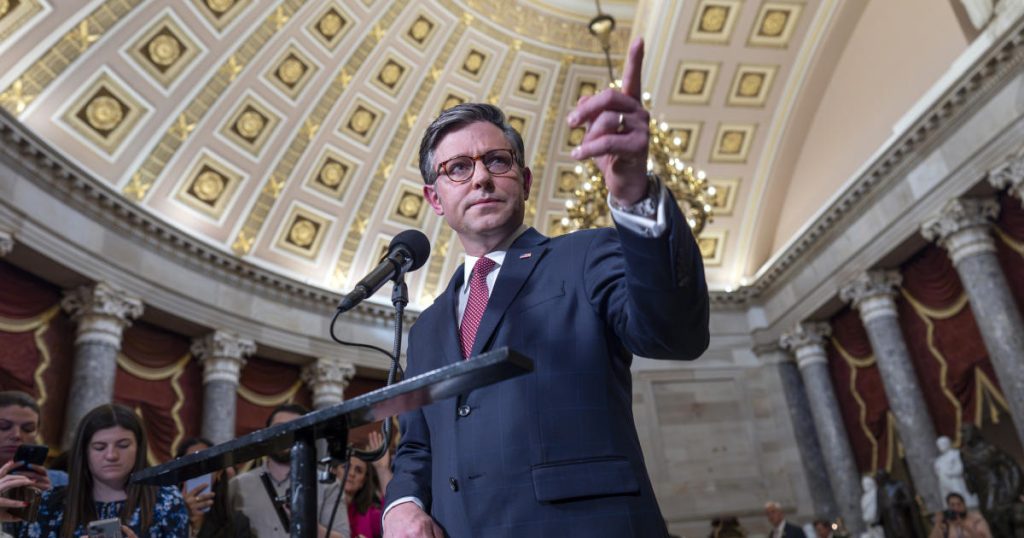The House is scheduled to vote on a $95 billion foreign aid package that includes support for Ukraine, Israel, and efforts to counter China in the Indo-Pacific. The package consists of four bills that will be voted on separately and then combined into one before being sent to the Senate. The fourth bill would allow the sale of frozen assets of Russian oligarchs to fund future aid to Ukraine and authorize stricter sanctions on Russia, China, and Iran. The speaker, Mike Johnson, has faced pressure from Congress and the White House to hold a vote on the package, as the Senate had already passed a similar bill in February.
Johnson emphasized that separating the bills will allow members to vote on each one based on their conscience. His plan to bring up Ukraine aid for a vote was seen as a necessary step to avoid being bypassed by a small group of Republicans who oppose sending more aid to Ukraine and want border measures instead. There were threats against Johnson from some Republicans, who were attempting to force a vote on dethroning him. The rebellion poses a risk to Johnson’s job, but it remains to be seen if Democrats will step in to support him if the group of hardliners forces a vote.
Despite facing opposition and threats, Johnson has remained firm in his decision to move forward with the foreign aid package. Citing classified briefings he received, he stressed the importance of the aid in countering Russian aggression. Senate Majority Leader Chuck Schumer has indicated that the upper chamber will act quickly to send the package to President Biden, who has expressed his intention to sign it. The final passage of the aid package is crucial for addressing ongoing conflicts and tensions in various regions, including Ukraine, Israel, and the Indo-Pacific.
The aid package includes support for Ukraine in its conflict with Russia, backing for Israel as it battles Hamas and Iran, and efforts to counter China in the Indo-Pacific. Additionally, humanitarian aid for Gaza is also included in the package, which Democrats have insisted on for their support. The bill allowing the sale of frozen assets of Russian oligarchs for aiding Ukraine and imposing stricter sanctions on certain countries underscores the gravity of the geopolitical situation. Johnson’s efforts to navigate through these complex issues reflect his commitment to addressing critical global challenges and fulfilling important obligations.
Overall, the House vote on the $95 billion foreign aid package represents a pivotal moment for Speaker Mike Johnson, who is working to strike a balance between different factions within Congress and uphold the United States’ commitments to global allies. The outcome of the vote will shape ongoing foreign policy efforts, particularly in addressing conflicts and tensions in regions such as Eastern Europe, the Middle East, and the Indo-Pacific. Johnson’s leadership in advancing the aid package demonstrates a commitment to addressing pressing international issues and upholding the country’s role as a global leader in promoting peace and security.


